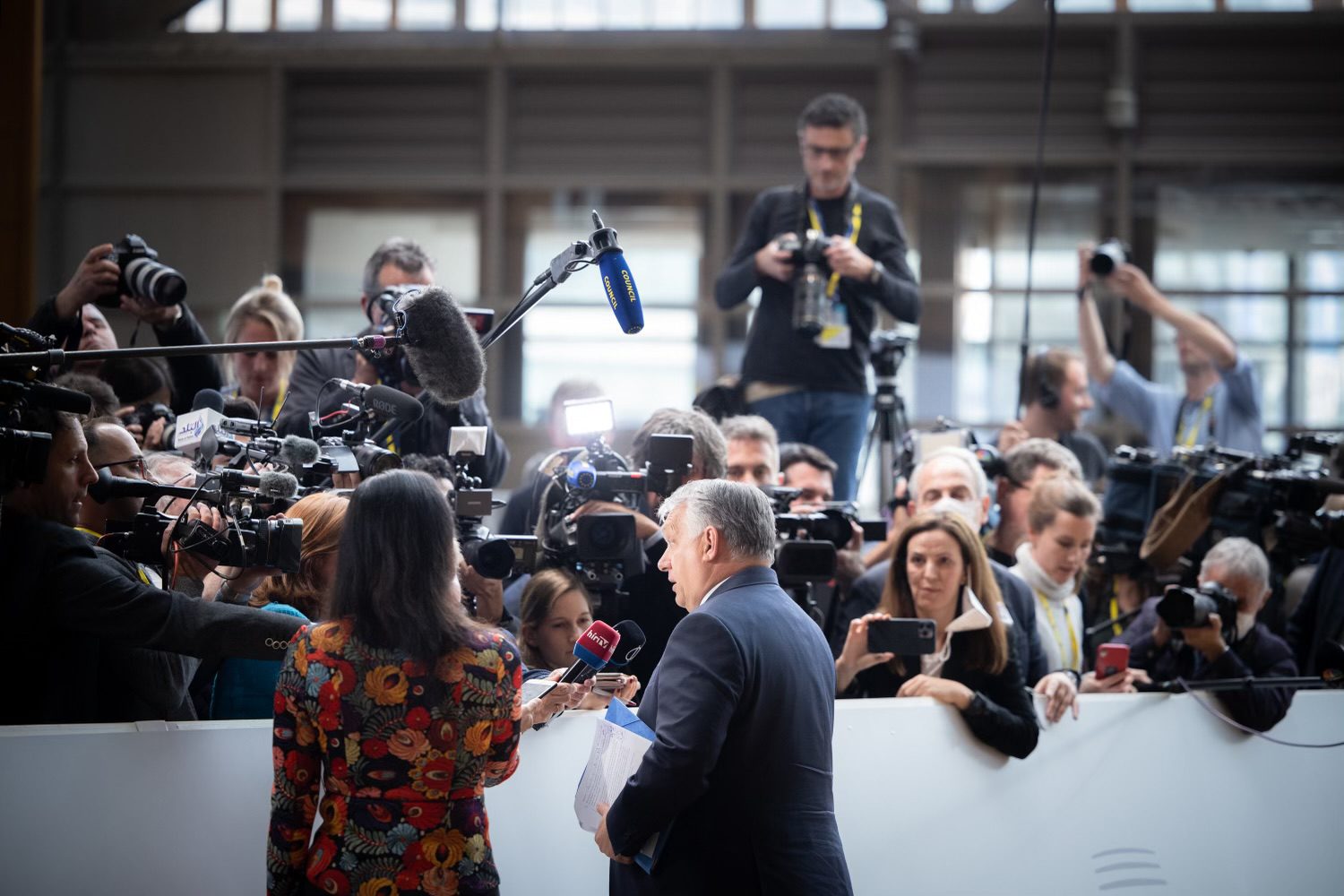
The Council of Ministers of the European Union agreed late Monday night, May 30th, on a sixth package of sanctions against Russia, this time targeting Russian fossil fuels—namely oil. The sanctions package also carries an important exemption on oil delivered through pipelines.
The possibility of banning Russian oil from the EU had been announced by EU Commission President Ursula Von der Leyen on May 4th, but Hungary, Slovakia, the Czech Republic, and Bulgaria objected, asking for special exemptions. After four weeks of negotiating, the EU’s leaders finally found a consensus: a ban on Russian oil delivered by sea shipments but “a temporary exception for crude oil delivered by pipeline.”
For the moment, the temporary exemption has no end date, while shipped imports of crude oil must be phased out in six months and refined oil products by the end of the year.
Two-thirds of Russian oil is imported to Europe by sea and the rest over land through the Druzhba pipeline, a massive conduit that directly feeds refineries in Poland, Hungary, Slovakia, the Czech Republic and Germany, Euronews reports. Poland and Germany have already made individual pledges to ban their imports from Druzhba’s Northern branch. The southern branch of the pipeline supplies Hungary. Between the sanctions and the pledges of Germany and Poland, 90% of Russian oil imports to Europe will come to an end in the coming months, EU Commission President Ursula von der Leyen noted.
While countries such as Hungary argue that they are at a disadvantage in facing sanctions on Russia fossil fuels, since they have no seaports to import oil easily from other countries, concerns could also be raised that the exemption violates the single market principle of the EU, since those countries connected to pipelines will still be able to take advantage of cheaper Russian oil.
The sanctions will also include a safety catch: “In case of sudden interruptions of supply, emergency measures will be introduced to ensure security of supply.”
Accusations over the cause of the delay in oil sanctions, which require the unanimous vote of the 27 EU countries, went both ways between Hungary and other countries.
Hungarian Prime Minister Viktor Orbán blamed the EU’s “irresponsible” approach to negotiating the sanctions for the four-week delay, while a senior diplomat told Euronews that Orbán was “playing Russia’s game.”
“Myself and others pleaded tonight that when we work on the seventh package,” Dutch Prime Minister Mark Rutte told Politico, that “we should have an upfront debate about all the technicalities before we start to discuss what actual sanctions would look like.”
Hungary’s staunch opposition to a blanket ban on Russian oil provided cover for other countries also hesitant to unplug from Russia oil.
The new sanctions also include banning Russia’s largest bank, Sberbank, from SWIFT, and bans on insurance of Russian sea vessels, sanctions against Patriarch Kirill, head of the Russian Orthodox Church and a close ally of Vladimir Putin, and blacklisting individuals believed to be involved in alleged war crimes committed in Ukraine.
These sanctions could hit Russia hard, as the EU is its number one oil customer. To date, however, no sanctions package has yet touched the holy grail of Russian natural gas.
After politicians reach a political agreement on Monday, ambassadors will hash out the exact wording, and, once published in the EU official journal in the next several days, the embargo will enter into force.
